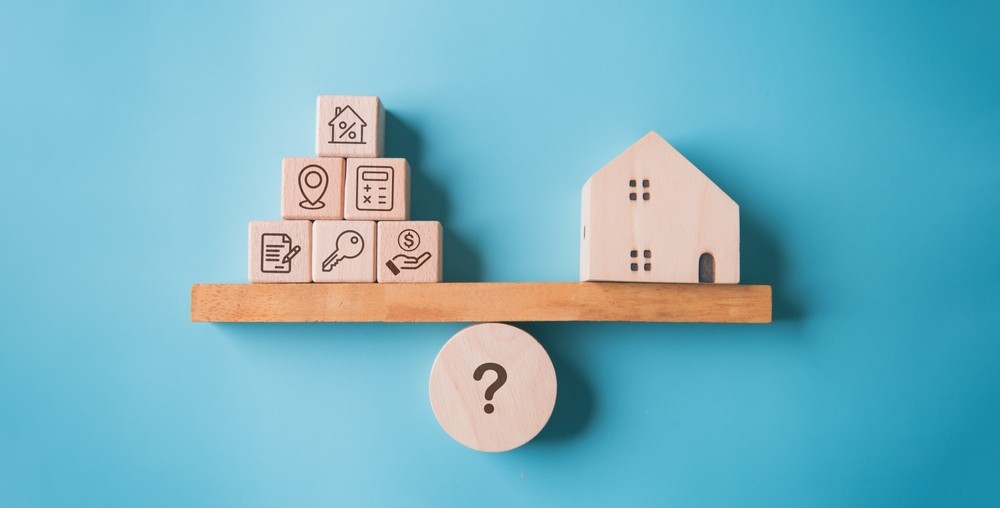Purchasing a home is one of life’s significant milestones and an aspiration for many. It symbolizes stability, independence, and an investment for the future. However, prospective homeowners often focus solely on the price of the property and the associated mortgage payments, overlooking other potential costs that accompany homeownership.
Property Taxes
One of the first costs that might catch you off guard is property taxes. These can vary drastically depending on the property’s location—urban areas might have significantly higher property taxes than rural ones. Property taxes are typically a percentage of the home’s assessed value, adjusted each year. This adjustment might mean your taxes increase even if your mortgage payments remain the same.
To prepare for this, research the property tax rates in the area you’re considering. Contact the local tax assessor’s office for accurate information. It’s also wise to budget for potential increases in the tax rate or assessed value of your home, as these adjustments can affect your annual expenses.
Homeowners Insurance
Homeowners insurance is not just advisable; it’s necessary. While mortgage lenders require it, many potential homeowners overlook how much this can add to monthly expenses. The cost of insurance depends on factors such as location, home value, and even the history of prior claims in the area.
To manage these costs, shop around for insurance quotes from multiple providers, comparing offerings and getting the best coverage for your needs. Consider bundling your policies with the same insurer—such as auto and life insurance—to potentially receive discounts.
Private Mortgage Insurance (PMI)
If your down payment is less than 20% of the home’s purchase price, you might be required to pay for Private Mortgage Insurance (PMI). This insurance protects the lender in case you default on your loan. It can significantly add to your monthly expenses and often comes as an unexpected cost for first-time buyers.
To avoid PMI, you could wait until you’ve saved enough for a 20% down payment or explore loan options that don’t require PMI but might have higher interest rates.
Maintenance and Repairs
The costs of maintaining and repairing a home often catch new homeowners by surprise. From leaky roofs to faulty plumbing systems, these expenses can be significant and unpredictable. Unlike renting, where a landlord takes care of repairs, homeownership means you are responsible for the upkeep.
Regular maintenance is crucial to preventing larger, more costly repairs down the line. Create a budget for maintenance and make an effort to set aside at least 1-3% of your home’s value each year. This fund can cover both routine costs—such as HVAC servicing or gutter cleaning—and unexpected repairs.
- Roof and Exterior Maintenance: Regular inspections and minor repairs can prevent major damage. This includes replacing shingles, applying weatherproof coating, or repainting the exterior.
- Plumbing and Electrical Systems: Keeping these systems in good condition not only ensures functionality but also prevents costly repairs. Regular professional assessments can uncover issues before they escalate.
- Landscaping: Yard care, tree trimming, and maintaining outdoor structures can become an ongoing expense, particularly for larger properties.
Utilities
Transitioning from renting to owning often brings new utility costs. As an owner, you will likely pay for water, gas, electricity, waste management, and sewage services—costs that are sometimes covered in rent. Utility expenses can vary based on factors like the size of your home, climate, and energy efficiency.
Consider conducting an energy audit of your future home to identify any inefficiencies. Investing in energy-efficient appliances, proper insulation, or smart home technology can lead to substantial savings over time. Also, be aware of local utility rates and average costs when budgeting.
Homeowners Association (HOA) Fees
If you purchase a property in a community governed by a homeowners association (HOA), you’ll likely be required to pay monthly or annual HOA fees. These fees cover maintenance and amenities like swimming pools, fitness centers, or community parks. While beneficial, HOA fees can increase over time, affecting your budget.
Review the HOA rules, regulations, and fee structures before purchasing. It’s also important to understand any special assessments that could be levied for unexpected community repairs or upgrades, which could further strain your finances.
Property Upgrades and Renovations
Even if you purchase a move-in-ready home, there may be changes you want to make to better suit your lifestyle. This could include kitchen upgrades, adding a deck, or finishing a basement. While these renovations can add value to your home, they also come with a price tag.
To manage upgrade costs, prioritize projects based on necessity and ROI (return on investment). Consider tackling one project at a time and obtaining multiple quotes from contractors to ensure you receive competitive pricing. This phased approach helps in managing both time and expenses.
Pest Control and Prevention
Pests can be more than just a nuisance—they can cause serious damage to your property. Termites, rodents, and other pests can undermine the structure of your home, leading to costly repairs. Routine pest control measures can mitigate these risks but can add up over time.
Budget for regular pest inspections and consider investing in prevention measures such as sealing entry points and keeping the property clear of debris. This foresight can save you from expensive damage and repairs.
Furniture and Appliances
Moving into a new home often necessitates purchasing new furniture and appliances, especially if you’re upgrading in size. Whether it’s a larger couch to fit the living room or energy-efficient kitchen appliances, these purchases can add substantially to your expenses.
When preparing for these costs, make a list of essential items and prioritize them. Look for sales, discounts, and consider second-hand options, which can offer significant savings without compromising quality.
Legal Fees and Closing Costs
Beyond the down payment and mortgage, closing on a house involves various fees that can add up significantly. Legal fees, appraisal costs, and title insurance are just a few examples. These expenses might come as a surprise if not properly anticipated.
To better anticipate these costs, request a detailed estimate from your mortgage lender early in the process. This estimate, known as the Loan Estimate, contains itemized closing costs, allowing you to prepare adequately and avoid last-minute financial strain.
Owning a home comes with a series of financial obligations beyond the obvious mortgage payment. By understanding these overlooked costs and budgeting for them, you can enhance your financial stability, make more educated decisions, and enjoy the pride and comfort that homeownership brings. Managing these expenses pragmatically will help ensure your home remains a sound and enjoyable investment, rather than an unexpected financial burden.



